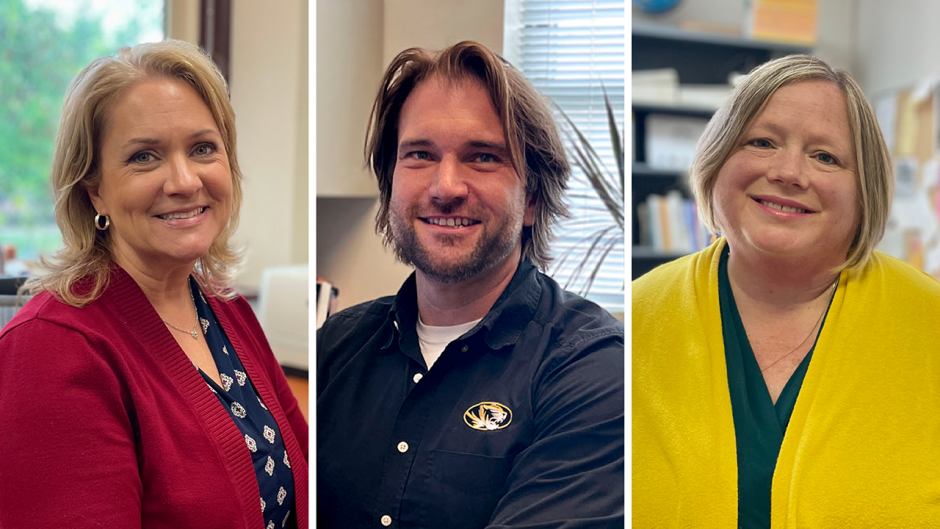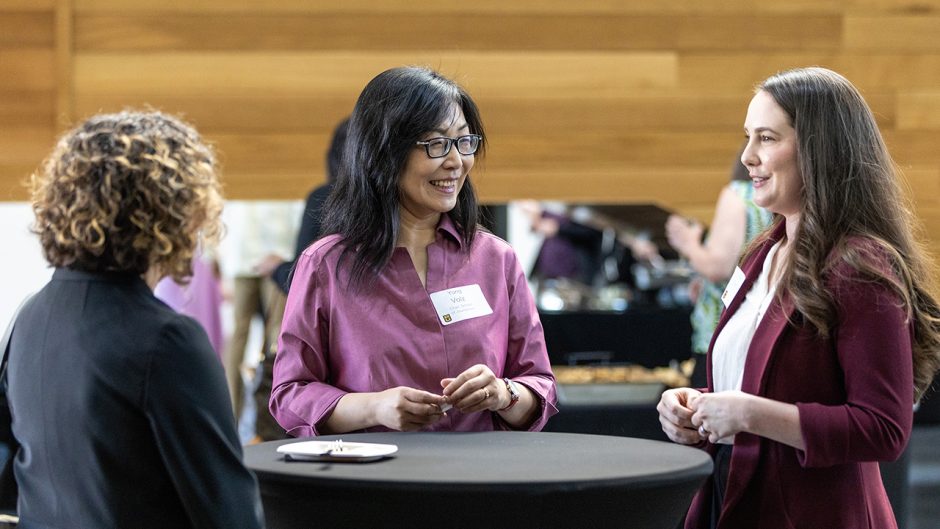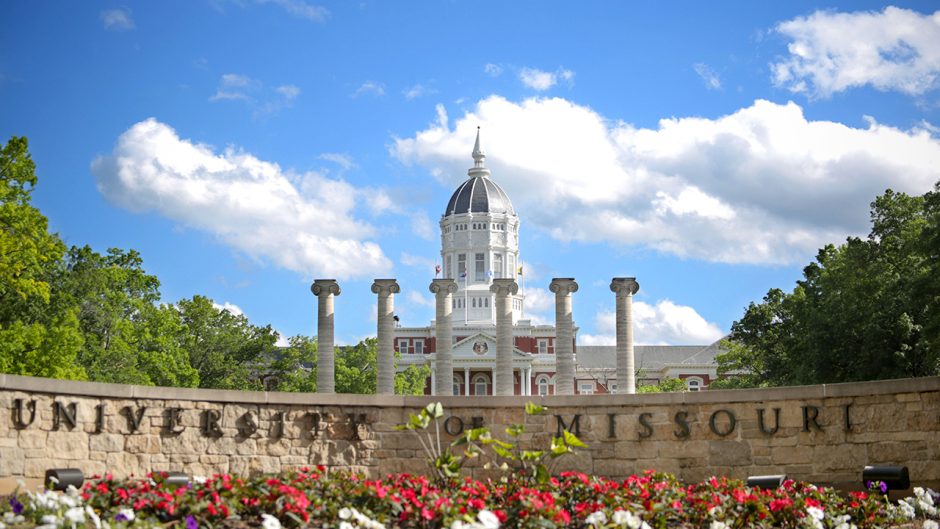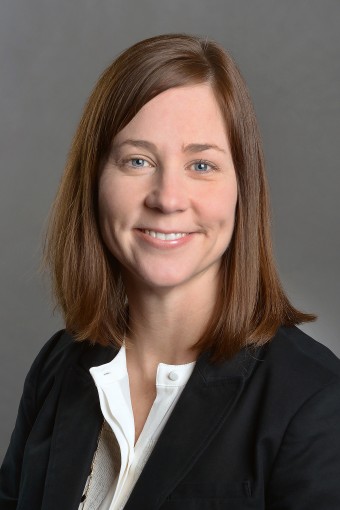
Meredith Naughton is the new executive director of the Missouri College Advising Corps.
Originally from the Bootheel of Missouri, Meredith Naughton has experienced first-hand the significant impact growing up in a college-going culture can have on a child. Naughton moved from southeast Missouri to Columbia in the sixth grade and says it was her teachers who inspired her to become who she is today.
“My passion is for students who might have slipped through the cracks,” Naughton said. “I personally have experienced the difference teachers and mentors can make on a child. I became a history teacher to be like the teachers I had in Columbia, and I am a first-generation college graduate because of the teachers who had an impact on me.”
After graduating from Truman State University, Naughton journeyed across the United States with her husband to attend graduate school at Stanford University. She then taught high school history before moving into college access and advising. Now, Naughton has found her way back to Missouri as the new executive director of the Missouri College Advising Corps (MCAC), a college-access advising program.
Making College Possible
Headquartered at the University of Missouri, the MCAC hires recent graduates of the four University of Missouri campuses to work as advisers in partner high schools across the state. MCAC’s mission is to empower Missouri high school students to attend college and succeed. The advisers demonstrate to high schoolers that college is within reach for students attending schools with a high percentage of first-generation-college, low-income and underrepresented minority students.
In the 2015–16 academic school year, 40 full-time MCAC college advisers are working in 41 high schools across the state. The advisers are immersed in the school setting and made available to all students in the school. MCAC advisers assist students and their families with college planning, applications and financial aid processes. As recent college graduates themselves, MCAC advisers encourage students as examples for their high school advisees.
The MCAC concentrates its efforts in both urban and rural areas of Missouri. MCAC does not recruit high school students for any one institution; instead, advisers work with students to find a postsecondary institution that is the best fit for each individual.
“Economic development is tied to higher education,” Naughton said. “Finding each student’s best-fit postsecondary institution — whether that’s vocational school, community college, a university across the United States or Mizzou — has a positive effect on the retention and success of the students in completing their education, leading to subsequent positive effects on communities.”
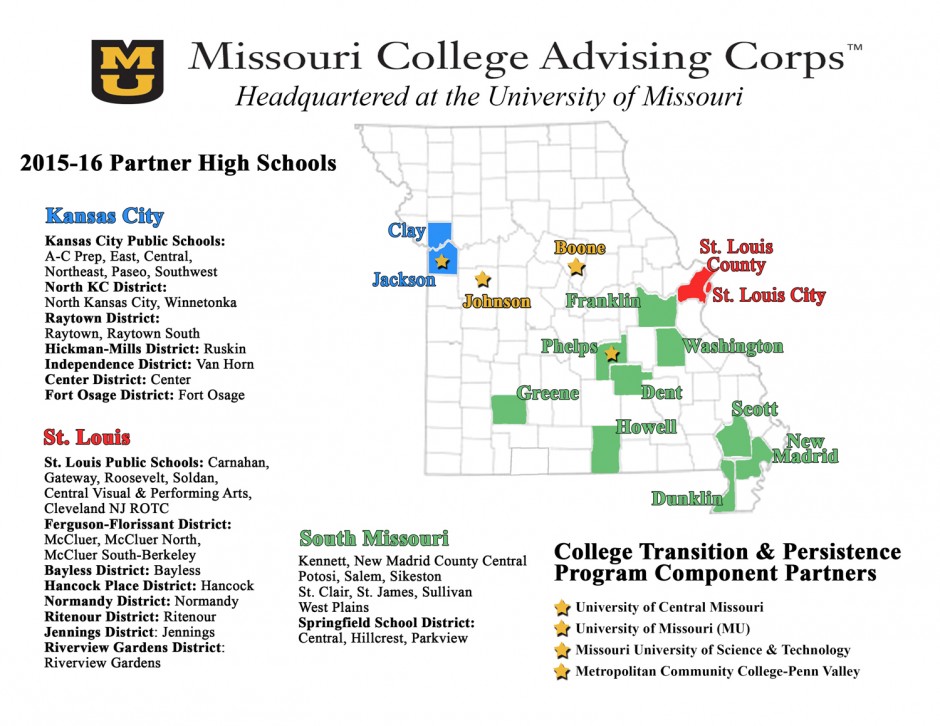
Making a Difference
The MCAC began in the fall of 2008 after MU successfully competed for a $1 million grant from the Jack Kent Cooke Foundation. Since the program was established, 8,487 MCAC advisees have gone to college. Naughton says one of the most exciting aspects of her new role is knowing the program has visible growth and direct impact on people’s lives.
“As a first-generation college student myself, I know how different my life could have been if I had not had influential mentors encouraging me to attend college and attain my goals,” Naughton said. “Missouri College Advising Corps is a model program of its kind in the nation. It is incredible to come into this well-respected program and know we are having a direct, positive impact on students.”
Naughton says the next step for the MCAC is program sustainability.
“The previous director built a great program,” Naughton said. “The next phase of MCAC will focus on long-term funding. We want to keep the program strong so we can continue to expand and help students across the state achieve their college aspirations.”
Schools across Missouri are requesting partnerships with the MCAC, but according to Naughton, program expansion is only possible through external funding, such as potential support from the state legislature and additional private organizations.
“The long-term goal of MCAC is to enhance the college-going cultures so that students in Missouri high schools view college as an option,” Naughton said. “Strengthening the culture and embedding this mindset in schools and communities takes time. Our focus will remain on strengthening and sustaining the program so it can continue helping to send students to college for decades to come.”
The MCAC is accepting applications for 2016–17 advisers. Learn more about the position at mcac.missouri.edu.

